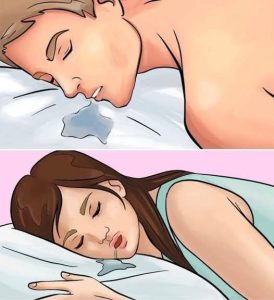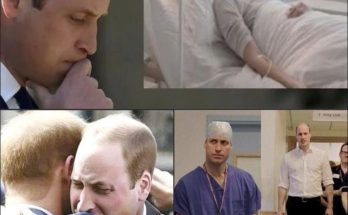
🤕If you drool while sleeping, it is a sign that your brain… See more

Drooling during sleep, medically known as nocturnal sialorrhea, is a common phenomenon that can offer insights into your sleep quality and overall health. While often harmless, understanding the underlying causes can help determine if it’s a benign occurrence or a sign of an underlying condition.(neurolaunch.com)
😴 What Does Drooling in Sleep Indicate?
- Deep Sleep and Muscle Relaxation
Drooling often occurs during the deeper stages of sleep, particularly REM (Rapid Eye Movement) sleep. During this phase, your body experiences muscle relaxation, including the muscles responsible for swallowing. This relaxation can lead to saliva accumulating and escaping from the mouth, especially if it’s slightly open. In this context, drooling can be a sign that you’re achieving restorative sleep. - Sleep Position
Sleeping on your side or stomach can increase the likelihood of drooling. In these positions, gravity can cause saliva to pool and exit the mouth. Conversely, sleeping on your back may reduce drooling as saliva is more likely to be swallowed. - Nasal Congestion and Mouth Breathing
Conditions like colds, allergies, or sinus infections can lead to nasal congestion, forcing you to breathe through your mouth during sleep. Mouth breathing increases the chance of drooling since the mouth remains open, allowing saliva to escape. - Gastroesophageal Reflux Disease (GERD)
GERD can cause increased saliva production as the body attempts to neutralize stomach acid that has entered the esophagus. This excess saliva can lead to drooling during sleep. - Neurological Conditions
Certain neurological disorders, such as Parkinson’s disease, cerebral palsy, or after a stroke, can affect muscle control and swallowing reflexes, leading to excessive drooling. - Medication Side Effects
Some medications, including antipsychotics and treatments for Alzheimer’s disease, can increase saliva production or affect swallowing, resulting in drooling.
🛌 Managing and Reducing Sleep-Related Drooling
- Adjust Your Sleeping Position: Try sleeping on your back to minimize the effect of gravity on saliva pooling.(health.com)
- Address Nasal Congestion: Use decongestants or allergy treatments to reduce mouth breathing.(verywellhealth.com)
- Consult a Healthcare Provider: If drooling is excessive or accompanied by other symptoms, seek medical advice to rule out underlying conditions.(verywellhealth.com)
- Review Medications: Discuss with your doctor if any current medications might be contributing to increased saliva production.(verywellhealth.com)
🧠 When to Seek Medical Attention
While occasional drooling is typically harmless, consult a healthcare professional if you experience:(buoyhealth.com)
- Sudden onset of excessive drooling(dailypositiveinfo.com)
- Drooling accompanied by difficulty swallowing, speech issues, or facial weakness(storietimes.com)
- Persistent drooling that disrupts sleep or daily activities(health.com)
These could be signs of underlying health issues that require medical evaluation.
In summary, drooling during sleep can be a normal part of the sleep process, often indicating deep, restful sleep. However, if it’s excessive or accompanied by other symptoms, it may be a sign of an underlying condition that warrants medical attention.(neurolaunch.com)


